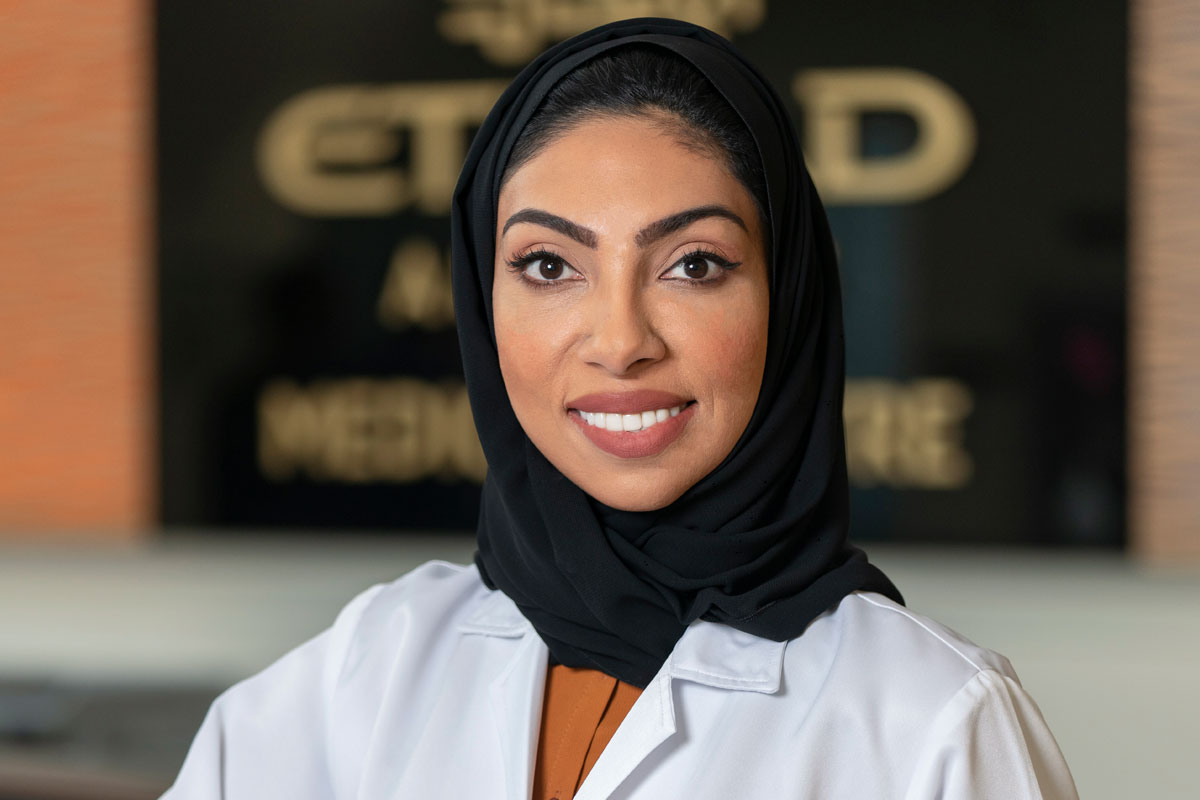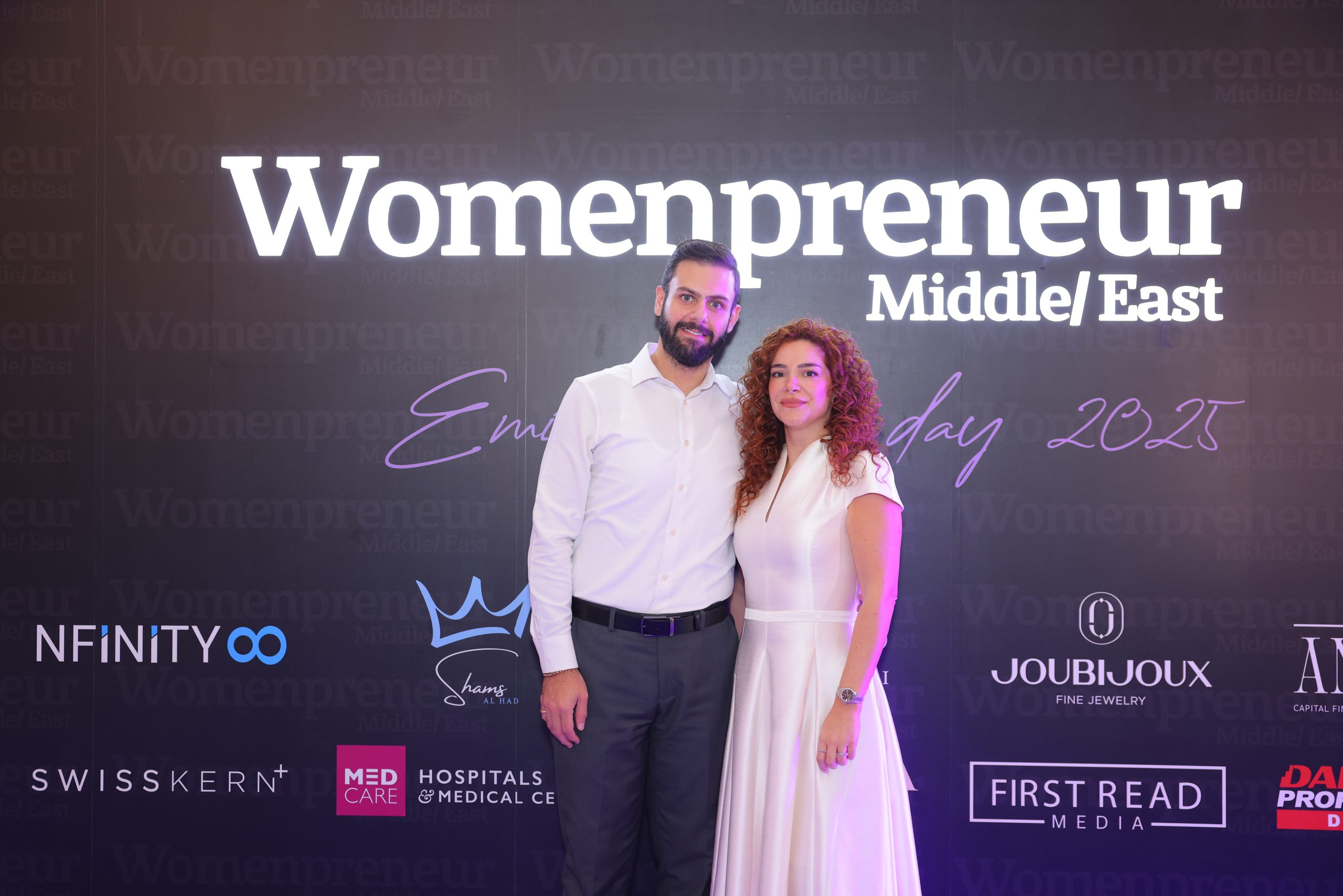Vice president medical services & CSR strategy at Etihad Aviation Group is playing a pivotal role in safeguarding the future of the UAE’s aviation industry, its workforce and passengers, during the turbulence caused by the coronavirus crisis
Dr Nadia Bastaki was last year identified as a ‘superhero’ as part of the Abu Dhabi Crown Prince’s Court’s Frontline Heroes initiative for her role in safeguarding the future of the UAE’s aviation industry, its workforce and passengers, during the turbulence caused by the coronavirus crisis.
However, while she has successfully battled the myriad of coronavirus-related challenges that have come her way over the past 12-months, as the first Emirati woman to be registered as a specialist in aviation medicine, Dr Bastaki has been fighting to break down stereotypes for much of her 20 years in the industry.
“I had to work really hard on myself and it was really difficult, but nothing is impossible and if you get your dedication, your passion, your purpose right, you can achieve whatever you want to achieve, whether it’s in aviation or not,” she told Arabian Business.
Her mission to overcome stereotypes has involved everything from breaking into traditionally male-dominated employment sectors to being a young Emirati female professional, to being a female doctor. The list goes on.
Dr Bastaki, who is vice president of medical services & CSR strategy at Etihad Aviation Group, said: “I think what attracted me to aviation medicine was because it was unique and I wanted to come out of the regular box. As you know, every female becomes doctors or teachers and I just wanted to do something different.”
After completing her studies at King’s College London, Dr Bastaki embarked on her journey through the aviation industry, blazing a trail like so many in an industry whose female participation was previously (albeit many years ago) restricted to cabin crew ‘trolley dollies’.
But if studying for her qualifications was tough, entering the world of work wasn’t without its own challenges.
“I started as a doctor and I remember the first time they recruited me and they said, ‘oh it’s an Emirati doctor, do you think she’s going to work?’ Then they saw I was from Dubai and they doubted whether I would travel to Dubai on a daily basis and work long hours,” she said.
“I remember listening to that comment behind the doors, of course it was not said to me directly, but I was like ‘Why not?’ I don’t know what the stereotype was they had at that time, but I remember I just changed their perspective because they didn’t understand that there is a female Emirati who is so dedicated, who will work long hours.

“A lot of people put you in this box or stereotype – she’s a female, she’s Emirati, she’s young, what does she know?”
Dr Bastaki also had to change the mind set of those who she was dealing with in a professional capacity, particularly men who would also grapple with the fact that, not only was there a female doctor standing in front of them, but also that she was an Emirati.
“The first pilot who came to see me asked where the doctor was. I told him it was me, but he said no. He asked if I was the nurse. He had this image in his mind that the doctor had to be old and grey and a male, certainly not a female Emirati,” she said.
Dr Bastaki now holds a key position in the aviation field as senior aeromedical examiner, as well as being a member of the General Civil Aviation Authority (GCAA) board and the People Advisory Board at Etihad.
And she continues to play an integral part in the nation’s response to Covid-19, helping to safely return airplanes to the skies, working closely with the UAE Ministry of Health, the GCAA and the country’s National Emergency Crisis and Disasters Management Authority (NCEMA).
“We were not implementing the decisions but we were there giving our expert opinions from an airline perspective so that our voices were heard,” she said.
“I was on the committee myself when we were shut down for a long time, three months I think, I created the whole entire document for transit passenger approval for the GCAA and NSEMA. We worked really hard and we did everything we could to open flying again.”

Currently 32.7 percent of Etihad Airways employees are female.
Dr Bastaki said: “If you look at it, aviation has grown since women were seen as the pretty faces of cabin crew with their uniforms. That was aviation in the past. I think that has evolved a great deal and today we see in this region a lot of pilots that we recruit or that we have trained; a lot of them are now in engineering fields and in technical fields, which is mainly man-driven.”
Currently, around three percent of commercial airline pilots and less than five percent of airline CEOs globally are women, while most technical roles in the industry tend to be filled by men. At Etihad over 33 percent of employees are female, over 34 percent are in managerial positions and over half UAE National staff are female.
In 2019, the International Air Transport Assocaition (IATA) launched the 25by2025 campaign to increase the number of women in senior positions by either 25 percent against currently reported metrics or to a minimum representation of 25 percent within five years.
Etihad is one of the Middle East airlines that signed up, as well as Bahrain’s Gulf Air and Royal Jordanian.
And while Dr Bastaki is keen to see more female representation in the industry, she guards against setting mandatory targets for diversity.
“I am more into making sure we have the right people for the right job and that they are mentored and have the support to reach that place and create the infrastructure for them. We don’t want to just put the female in the role and forget about them. We want to make sure they can continue their journey within the same organisation and climb the ladder,” she said.

“For that to happen it’s a buy-in from both ends – it’s a buy-in from the individual themselves and buy-in from the company as well. We don’t want to create programmes where the company just ticks a box, we want to ensure that we have the programme for a reason and whether the person continues with us or not, they can serve initially our airline, but if not they can serve a bigger purpose which is the UAE or internationally.
“That’s where we have to change the mentality. It’s not about the numbers, it’s about making sure that we have an infrastructure, the right policies in place, the right candidate.”












